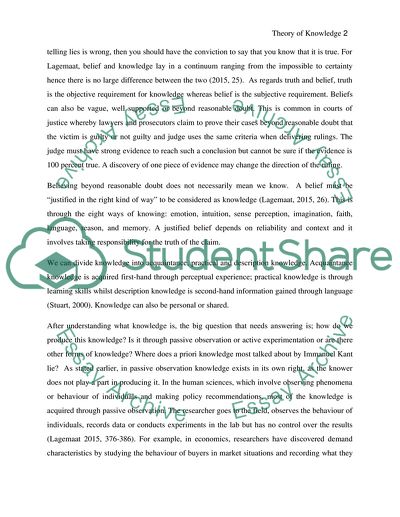Cite this document
(The Various Areas of Knowledge and Ways of Knowing Essay Example | Topics and Well Written Essays - 1500 words, n.d.)
The Various Areas of Knowledge and Ways of Knowing Essay Example | Topics and Well Written Essays - 1500 words. https://studentshare.org/philosophy/1680157-the-various-areas-of-knowledge-and-ways-of-knowing
The Various Areas of Knowledge and Ways of Knowing Essay Example | Topics and Well Written Essays - 1500 words. https://studentshare.org/philosophy/1680157-the-various-areas-of-knowledge-and-ways-of-knowing
(The Various Areas of Knowledge and Ways of Knowing Essay Example | Topics and Well Written Essays - 1500 Words)
The Various Areas of Knowledge and Ways of Knowing Essay Example | Topics and Well Written Essays - 1500 Words. https://studentshare.org/philosophy/1680157-the-various-areas-of-knowledge-and-ways-of-knowing.
The Various Areas of Knowledge and Ways of Knowing Essay Example | Topics and Well Written Essays - 1500 Words. https://studentshare.org/philosophy/1680157-the-various-areas-of-knowledge-and-ways-of-knowing.
“The Various Areas of Knowledge and Ways of Knowing Essay Example | Topics and Well Written Essays - 1500 Words”. https://studentshare.org/philosophy/1680157-the-various-areas-of-knowledge-and-ways-of-knowing.


